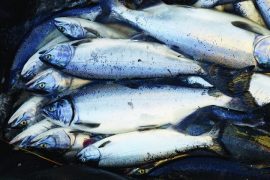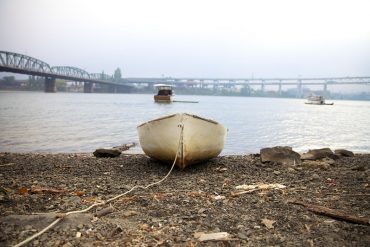Galice Mining District
Environmentalists like Mr. Bates claim that placer mining harms salmon and other types of fish. To support their position, Bates and others continually refer to a few studies conducted on the subject to justify banning mining in Oregon. Despite insisting science is on their side, Bates and his allies fail to address the findings of at least twenty-one major scientific studies that say the effects of the average-sized suction dredges have “de minimus” impact on aquatic life. These studies have been conducted by state agencies as well as the U.S. Forest Service, U.S. Army Corps of Engineers, the United States Geological Survey, the Environmental Protection Agency and others. More than 85 percent of the studies that have been conducted on the potential environmental effects of suction mining have actually confirmed what miners have long known: suction mining does not adversely impact aquatic wildlife.
One claim is that miners stir up mercury that can be found in waterways and disperse it into smaller particles, thereby poisoning fish. On May 22, the California State Water Board tested more than 600 fish from sixty different waterways in California and found that, contrary to the claims of environmental groups, every fish analyzed from waterways which are known to be suction mined, was free from mercury and other heavy metal contamination.
Like gold, mercury has a very high specific gravity and is a naturally occurring element that can be found throughout the Western States. Like gold, it works its way out of rock ledges and into creeks and rivers. This erosion has been going on since the early days of the planet. Every year, miners recover hundreds of pounds of mercury from America’s waterways through the use of suction dredges and similar devices. In Washington state, the Department of Ecology established a partnership with miners to help aid them in the removal of mercury from its waterways. Between 2006 and 2011, Washington collected 496 pounds of mercury from those miners.








